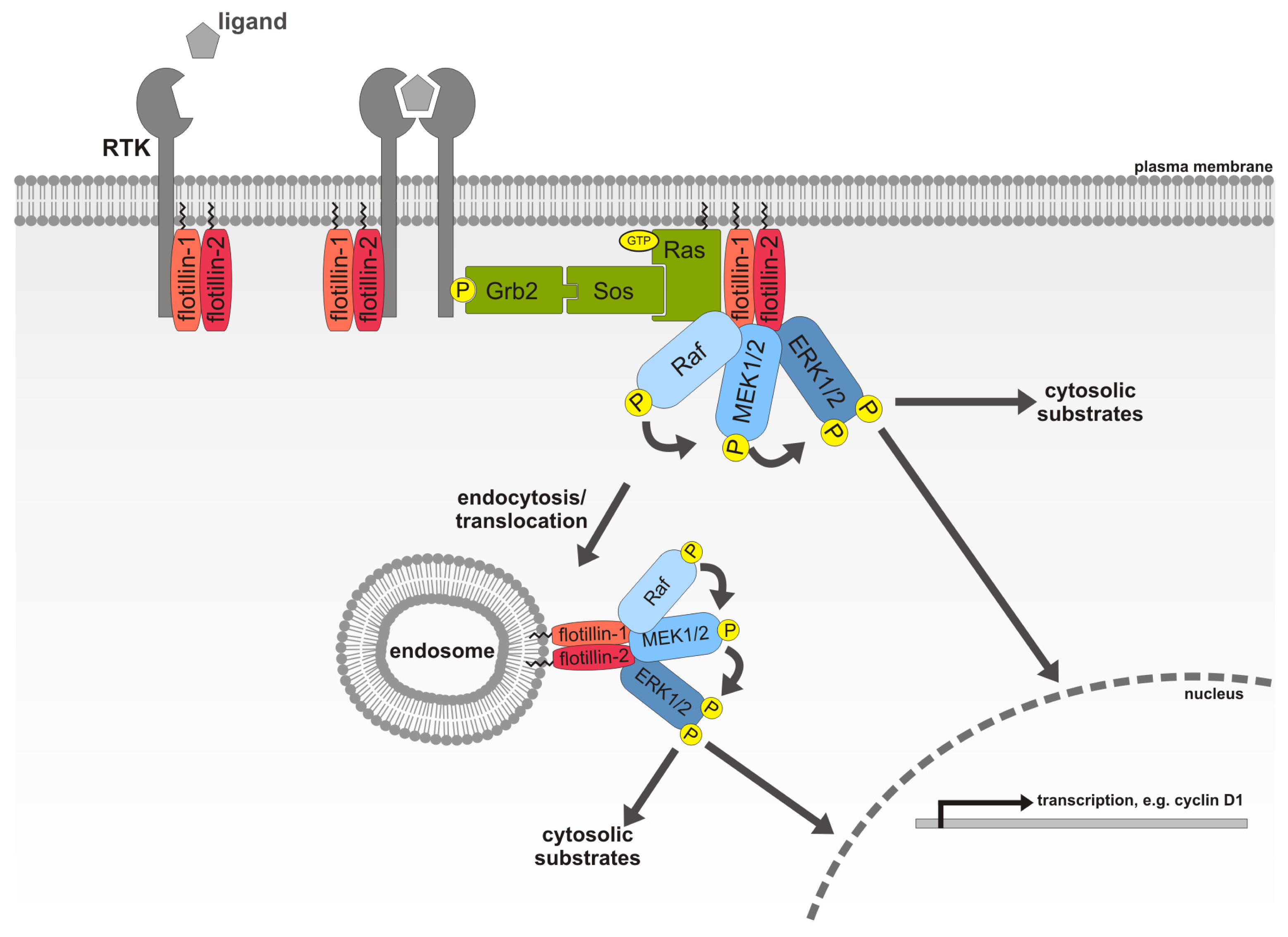How Map Kinases Are Regulated. MAP kinases are activated within protein kinase cascades that regulate cell proliferation, differentiation, and death. Summary: The mitogen-activated protein kinases (MAPKs) regulate diverse cellular programs by relaying extracellular signals to intracellular responses. There are three main classes of MAP Kinases and are regulated by their respective MAPKKKs. The activity of MAPKs is tightly regulated by phosphorylation of their activation loop, which can be modulated by positive and negative feedback mechanisms to control the amplitude and duration of the signal. In mammals, there are more than a dozen MAPK enzymes that coordinately regulate cell proliferation, differentiation, motility, and survival. The MAPK signaling cascades are most often initiated by receptor-mediated activation of members of the small monomeric G protein family, such as Ras, Rac, or Rho.

How Map Kinases Are Regulated. MAPK activity is regulated by reversible phosphorylation at threonine and tyrosine residues. Mitogen-activated protein kinases (MAPKs) are serine and threonine protein kinases that are highly conserved in eukaryotes, and are involved in signal transduction pathways that modulate physiological and pathophysiological cell responses. The signaling outcomes of MAPK pathways are further regulated by interactions of MAPKs with scaffolding and regulatory proteins. With this high percentage, it is important to generate appropriate and timely information regarding the safe use of medicines during pregnancy, and the U. This body of work has shaped many aspects of our present views of signal transduction by protein kinases. There are three main classes of MAP Kinases and are regulated by their respective MAPKKKs. How Map Kinases Are Regulated.
The MAP kinases themselves are activated by MEKS.
How MAP Kinases Are Regulated (∗) INTRODUCTION.
How Map Kinases Are Regulated. MAPK activity is regulated by reversible phosphorylation at threonine and tyrosine residues. This body of work has shaped many aspects of our present views of signal transduction by protein kinases. The MAPK signaling cascades are most often initiated by receptor-mediated activation of members of the small monomeric G protein family, such as Ras, Rac, or Rho. Of clinical significance is that defective regulation of the MAPK cascades often leads to diseases such as cancer and diabetes. Mitogen-activated protein kinase (MAPK) cascades are key signalling pathways that regulate a wide variety of cellular processes, including proliferation, differentiation, apoptosis and stress responses. Several classes of MAPKKK exist, and all of them are upstream of MAP kinases.
How Map Kinases Are Regulated.











